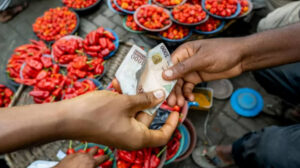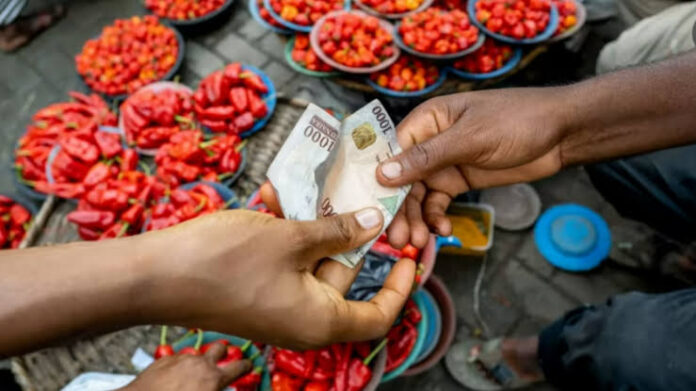Nigeria’s inflation has slowed for the first time in 19 months, offering a glimmer of hope to citizens struggling with the country’s worst cost of living crisis in decades.

According to the latest data from the Nigerian Bureau of Statistics, the headline inflation rate in July stood at 33.40%, down from the 34.19% recorded in June. This decline in the overall price level is a positive sign that the successive interest rate hikes by the Central Bank of Nigeria (CBN) may be starting to yield some results.
Food inflation, a crucial indicator for Nigerians, also saw a slowdown, dropping to 39.53% from 40.87% in June 2024. This moderation in food prices is particularly welcome news, as it could provide some relief to households facing the challenge of affording basic necessities.
“The moderations we have been expecting for the longest time might start to happen through the end of the year,” said Samuel Onyenkanmi, an Analyst at Norreberger, expressing cautious optimism about the trend.
The slowdown in inflation comes as a relief to Nigerians, who have borne the brunt of the government’s economic reforms under President Bola Tinubu. Citizens have staged protests, demanding lower electricity tariffs and the reinstatement of fuel subsidies, which were removed as part of the administration’s efforts to address the country’s fiscal challenges.
In a move aimed at lowering the cost of food, the government recently suspended taxes and import duties on items like maize and wheat for 150 days. This measure is expected to contribute to the moderation in food inflation observed in the latest data.
However, not all aspects of the inflation landscape are equally encouraging. Core inflation, which excludes farm produce and energy, quickened to 27.47%, driven by increases in rent, transportation, and other services. This suggests that the inflationary pressures are still present in various sectors of the economy, and the battle against high prices is far from over.
Experts attribute the slowdown in headline and food inflation to the combined effect of the CBN’s monetary policy actions, the government’s targeted interventions, and the potential impact of the recent agricultural harvest season. The central bank has been aggressively raising interest rates to curb inflation, with the key rate currently standing at 18.5%.
While the slowing of inflation offers a glimmer of hope, economists warn that the path to sustainable price stability remains challenging. Continued vigilance and a comprehensive approach, including structural reforms and diversification of the economy, will be crucial in addressing the underlying drivers of inflation and ensuring a lasting improvement in the living standards of Nigerians.
As the government and the central bank continue their efforts to tame inflation, citizens will be closely watching the developments, hoping that this initial moderation is the start of a more sustained decline in the cost of living crisis that has gripped the nation.




